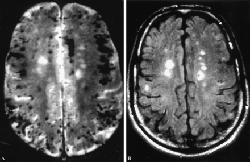Vascular Dementia is the second most commonly diagnosed form of dementia (after Alzheimer’s) and it’s estimated it accounts for up to 20% of dementia cases. According to Mayo Clinic, vascular dementia is described as brain damage from an impairment of blood flow to the brain resulting in problems with decision making, judgment, and other thought processes.
Causes of Vascular Dementia:
Symptoms of vascular dementia can occur suddenly and severely such as with a major stroke, or they can occur gradually and mildly with repeated mini strokes.
A person may develop vascular dementia after one major stroke in which a large blood vessel in the brain becomes blocked. This causes cells to lose oxygen and nutrients and then die.
According to The Alzheimer’s Association, if a person is diagnosed with vascular dementia soon after a major stroke occurs, it is referred to in some cases as “post-stroke dementia.”
Several small strokes may also cause damage to blood vessels which block or reduce the blood flow to the brain. ”Mini strokes” that go unnoticed are the most common type of vascular dementia – multi-infarct dementia (MID). Alone, these mini-strokes may not contribute to noticeable symptoms, but over time they combine to cause lasting effects.

Other causes which may lead to vascular dementia are health issues which may lead to increased narrowing or damaged blood vessels in the brain. These include:
- High blood pressure
- High cholesterol
- Diabetes
- Brain hemorrhage
Symptoms:
Although symptoms can vary due to the area in the brain that has been affected, some possible symptoms are:
- Hallucinations (seeing, hearing, smelling, tasting, or feeling something not there)
- Unusual changes in mood or attitude
- Slower thinking process
- General forgetfulness
- Changes in gait, such as walking with rapid shuffling steps
- Loss of bladder or bowel control
- Overall weakness
- Balance problems
- Shakiness in hands
- Dizziness
- Getting lost in familiar settings
- Laughing or crying inappropriately
- Unable to plan or organize activities
- Inability to follow instructions
Vascular Dementia: Causes & Prevention
Has your loved one been diagnosed with Vascular Dementia?
Remember, those dealing with any form of dementia are not doing these things on purpose. Often when providing care, caregivers trigger behaviors without realizing it.
By understanding more about the many different types of dementia, we begin to improve quality and enjoyment of life at whatever stage of dementia a senior happens to be in.
At Aspen Senior Day Center we provide activities and day services for seniors with all types of dementia and other challenges such as Parkinson’s disease. This gives them a chance to get out of the house, socialize, and have a better quality of life. It also gives family caregivers the break they need so they can recharge their batteries and keep providing good care at home.
_________________________________________________________________________________________________
Learn about different types of dementia in our other blog posts!
Understanding Alzheimer’s Disease
_________________________________________________________________________________________________
At Aspen Senior Day Center in Provo, we provide adult day care services (fun activities and personal care) for seniors with all types of dementia.
Aspen Senior Care provides in-home care for seniors with all types of health challenges, including all forms of dementia.
Contact Karen Rodgers, Family Caregiver Coach, for a free assessment to help you navigate the challenges of caregiving. You can reach her at 801-224-5910.
Visit aspenseniorcare.com or call our office at 801-224-5910 for more information.

